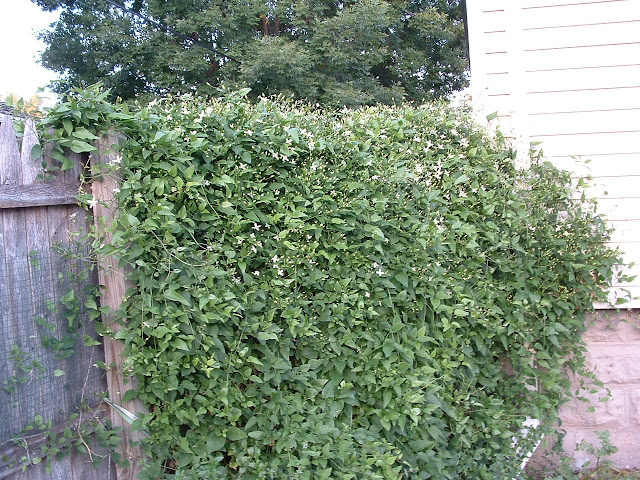I have a friend who last year received a clematis plant from
the
Garden of Nemesis.
She was given one of the rare seedlings thrown off by this clematis.
She said it came up this spring, but had disappeared by the time she
came back from her two week vacation. She asked for another one. Unfortunately,
this particular clematis rarely reseeds. I’ll give her some seeds and see if
she can start one of her own.
I have forgotten the name of this lovely clematis planted in 2003 but
not forgotten is its story. I mail ordered this “red” clematis at a time when I
was intent on getting more of that color in the garden. I have since learned
that true red, or scarlet, is not so easy to proliferate with perennials.
Back to the tale…The first summer it looked like it was
struggling just to stay alive. The summer of 2004, it was gone and I lamented.
I thought about getting a replacement but never got around to it. In 2005, it reappeared
and grew like a maniac. Every year since, it’s grown bigger and covers more of
the trellis. So I advised my friend not to dig up the “dead” clematis, as it
may just be concentrating its energy on root forming.
On my back fence grows the Sweet Autumn clematis planted in
2002.
The two babies I let grow now look better than the mother plant, which I severely
cut back and almost killed. The babies grew volunteer on the north side of the
fence along the alley. They really like it there as all clematis like shaded
roots and the fence provides that while the plant tops the fence and can be
enjoyed from both sides.
Sweet Autumn is one of the last things to bloom in the
garden. If the weather is warm and the kitchen window is open, its sweet fragrance
drifts through the cottage.
In 2005, I planted this clematis with the idea that it would
climb the service berry shrub.
Maybe not such a good idea as the garden has
matured; the trees have grown and the neighbors build a privacy fence and the
poor thing gets no sun now.
A few years ago I decided to move it, but it cannot
be dug as its roots are cemented in with those of the service berry. I suppose
I could yank it out and take my chances there will be enough root left to plant…







No comments:
Post a Comment